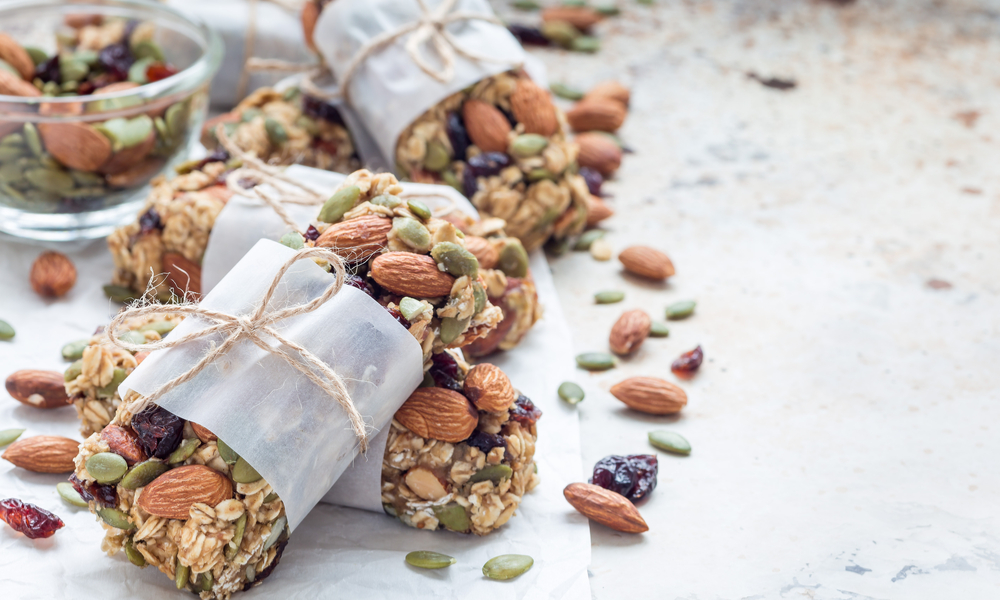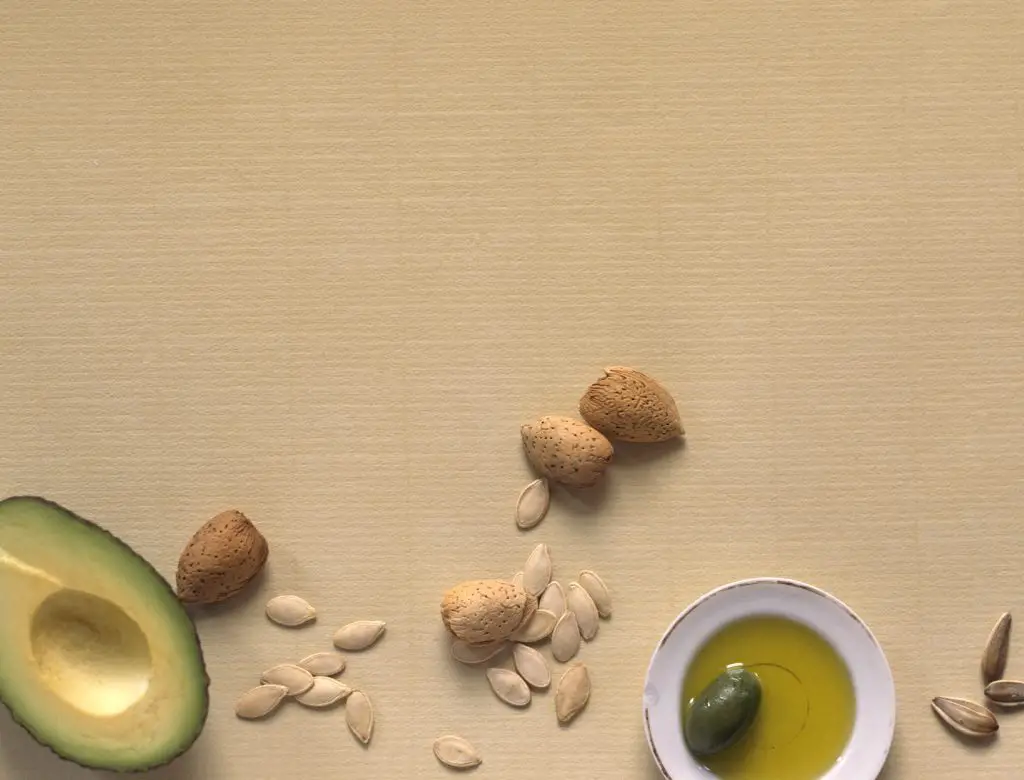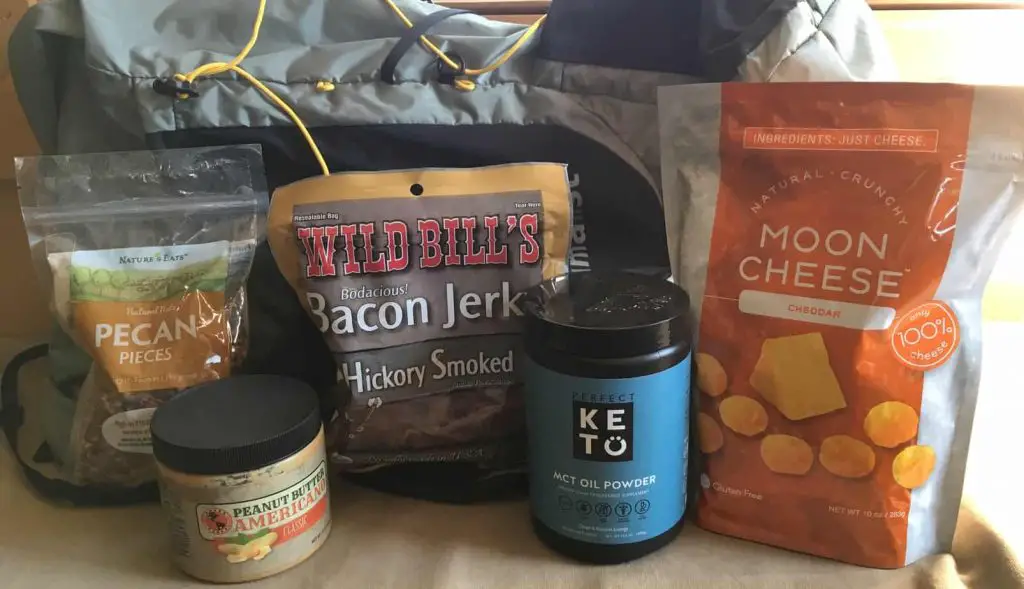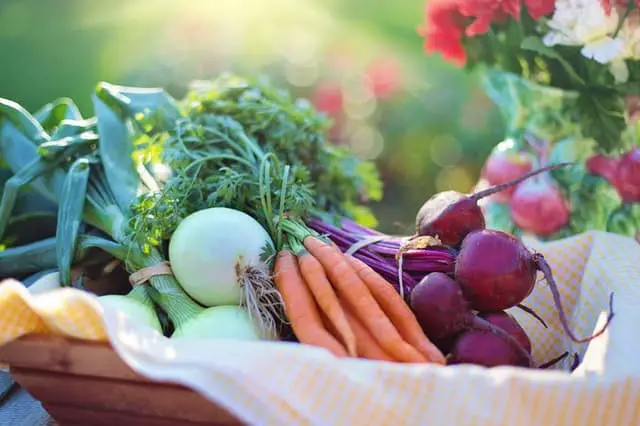Staying fit and healthy is especially important in this day and age where everything is automated and we rarely get any physical exercise done other than a short walk to work. Because of this, a growing number of people are dieting and exercising but unfortunately, many diets are not conducive to carrying out an exercise regime at the same time.
A growing number of people are now however opting to go on a Keto diet and as for physical activity, they are opting to go backpacking. The fortunate thing about this is one does not prohibit you from doing the other and so you can stay slim as well as stay fit and healthy.
Whilst backpacking you must, however, remember your Keto diet and pack the relevant foods accordingly. This should not be too difficult though as a Keto diet allow for a great deal of flexibility as well as variety.
Items You Should Consider Among Your Keto Backpacking Foods

Salami or sausage
Although there are several different types of meat products that can be eaten on a Keto diet, such as sausages, bacon and some other cured meats, salami is particularly amongst backpackers because it can last several days at room temperature without spoiling.
Originally from Italy, back in the days, salami was popular amongst the poor due to its long shelf-life. Today, of course, many countries make their own brands but for the purpose of carrying in a backpack, perhaps one of the dry salamis would be most appropriate.
Cheese
Although Goat cheese, blue cheese, cream cheese, and parmesan may be the best cheeses to eat whilst on a Keto diet, perhaps the best cheese for a backpacker to carry is cheddar when wrapped well, can be really practical.
If you do decide to pack a cheddar cheese you should ensure that it is white cheddar which does not have the additional additives like annatto which the colored varieties have. Also, the single slices or shredded varieties have added preservatives and so they too should be avoided.
Nuts or seeds
Nuts and seeds can provide you with nutrients and a good amount of fat and the best thing about them when backpacking is, not just that they are able to be packed easily, but they can easily be made available for snacking while on the go.
If you wish to keep cooking to a minimum, snacks of nuts and seeds are the best idea to keep you going.
Pecans, Almonds, Brazil and Macadamia Nuts are probably the best nuts for Keto but if you are on a budget, peanuts will do. The best seeds to carry while you are backpacking are Sunflower or Pumpkin Seeds.
Avocado

As well as certain berries like raspberries and strawberries being good for a Keto diet, some fruits like lemons are also good but perhaps the best one for backpacking is avocado.
The reason for this is that when they are under-ripe, they are hard and do not bruise easily but when you come to eat them along your journey, they are delicious.
Whilst half an avocado will only have 2gms of carbs, it has a full 15gms of fat, ideal for keeping you on track with your diet whilst continuing along your trail.
Jerky
Although we have already mentioned salami as being a great addition to your backpacking journey, jerky is also a great Keto food which can be turned into various snacks before you set out or chewed on as a snack on its’ own.
Jerky is low on carbs yet high on fats and so will provide you with the energy needed to keep on hiking.
Keto trail mix
Bags of trail mix have become very popular amongst hikers today as they provide a good source of energy whilst on the go. As well as being many other different types of trail mix available today, there are some which are specifically formulated for those on a Keto diet.
Why buy a trail mix though when you can easily make your own? You can make your own by simply adding some unsweetened chocolate chips to an assortment of dried fruit, nuts and seeds.
Low carb protein bars
By far the easiest way to get energy on the go is in the form of protein bars as they can be kept in a pocket, readily available for when you want or need one. Once again, as with trail mix, these have become very popular and so many different ones are available and that includes, low carb, Keto-friendly protein bars.
These allow you to refuel your body without even stopping or can be enjoyed as you take a short rest.
Mayo/Olive oil/Coconut oil packets
When backpacking, it may not be as easy to maintain your fats and protein levels as it is at home, but you can ensure you get sufficient by also packing some individual packets of olive oil, mayo or similar things like coconut oil.
Not only can these keep up your intake of fats and proteins but they can also add flavor to whatever else you packed.
Do not forget that as well as taking adequate fats and proteins it is also important to keep up at least a minimal amount of carbs and these will help you achieve that.
MCT powder
MCT stands for Medium-Chain Triglyceride or medium-length chains of fats which can more readily be absorbed by the body than other fats. Coconut oil is made up of 50% MCT and MCT can also be found in many other products like Palm Oil and dairy products.
MCT can be bought in jars or single-serving packets which are ideal for adding to your morning coffee to give you a great start to your day.
Instead of MCT, you could use a heavy cream powder in the same way for similar results.
Coffee/tea
A mug of warm coffee in the morning whilst on the trail can perhaps be even more invigorating than it is at home and as coffee and tea are acceptable on a Keto diet do not forget to put some in your pack.
Remember though, whilst on a Keto diet, you should drink your coffee and tea without milk. If however, you feel the need to add something to your mug, don’t forget the heavy cream powder you should also have packed.
As well as a mug of coffee in the morning getting you off to a good start, there is nothing more relaxing than going to bed with a nice cup of Keto friendly tea.
Buying Guide for Keto Food to be Carried Whilst Backpacking

Even under normal circumstances, you have to choose the food to take backpacking with you carefully. This is because you have to ensure you have enough and yet be able to fit it all in your pack along with everything else you will need.
You will, therefore, have to take even more care if you intend to keep to a Keto diet whilst you are backpacking.
As with any types of food you pack for backpacking, you will need to pack enough for the number of days you will be on the trail without access to a store for replenishments but, if you intend to stick to your Keto diet you will have to ensure all the food you pack is Keto friendly.
If you are already on the Keto diet you will know what your allowances are, however, as you are backpacking and therefore using more energy, instead of limiting yourself to less than 2gms net carbs per day, you can allow as much as 50gms.
As always, you will have to ensure you pack nothing which will spoil before you need it but fortunately the foods on a Keto diet are often compatible with this.
For instance, dried salami and jerk meat should keep edible in your pack for a few days, as will nuts and seeds. Keto-friendly trail mixes and energy bars will remain in the edible state either in your pack or in one of your pockets.
Although berries may be difficult to pack safely, avocados do not present the same problem and if you pack unripe ones, they will be hard and sufficiently bruise proof and yet should be ripe enough to eat when you are ready.
Although many types of cheese may be difficult to pack and may spoil after a few days, hard white cheddar, which is one of the better Keto cheeses, if properly wrapped in grease paper to stop it sweating over everything, will remain suitably edible for several days on the trail.

As with any other diet and with backpacking in general, you will have to ensure you are hydrated at all times and your water intake should not change when you are on a Keto diet. But remember, if you do take other liquid refreshments, sweetened juices or sodas should not be among them.
Both coffees in the mornings and tea at night are always welcome whilst camping and fortunately, a Keto diet does not prohibit these but you must ensure that both are Keto friendly and should not be taken with milk added.
For those who find coffee or tea less palatable with nothing added, consider adding powdered heavy cream.
Whilst ordinarily Keto-friendly foods should not take up more weight or space than other foods would, you should remember that if you do plan to restock somewhere on route, they may not carry Keto-friendly supplies and so at least pack ample Keto-friendly coffee, tea and powdered heavy cream for your entire trip.
Any store should be able to provide you with other Keto-friendly foods of one sort or other but you may just have to adapt your meal plan accordingly.
Frequently Asked Questions
What can’t you eat on a Keto diet?
The foods you should try and avoid as much as possible are, Peanuts, beans, peas, and lentils. Grains like oatmeal, rice, and pasta.
Added sugars and sweeteners plus low-fat dairy products should also be avoided as should traditional snacks like pretzels, potato chips, and crackers along with sweetened beverages like juices and sodas.
What fast food can I eat on a Keto diet?
Basically any fast food that does not include bread or a bun so a bun-less burger is alright as is a Low-Carb Burrito Bowl or a low carb salad. Egg-based breakfasts are usually OK but you should only accompany it with a Keto-friendly beverage.
How long should you mantain a Keto diet?
It is estimated that it will take the body 2 to 6 weeks just to get used to the type of food intake and so it will probably take at least 3 months before you start to see real results.
Does being hungry means you’re losing weight?
Although some experts say feeling hungry is part of a normal weight loss program, some believe it is best not to feel hungry as when you do, you are too strongly tempted to stray from your diet or overeat in general.
What fruit can you eat while on a Keto diet?
Fruits are generally known to be high in carbs and so many people incorrectly think that they cannot enjoy fruit whilst on the low carb Keto diet.
The truth is though that certain fruits like avocado and lemons and some berries like raspberries and strawberries can be enjoyed by people even if they are on a Keto diet.
Leave a Reply